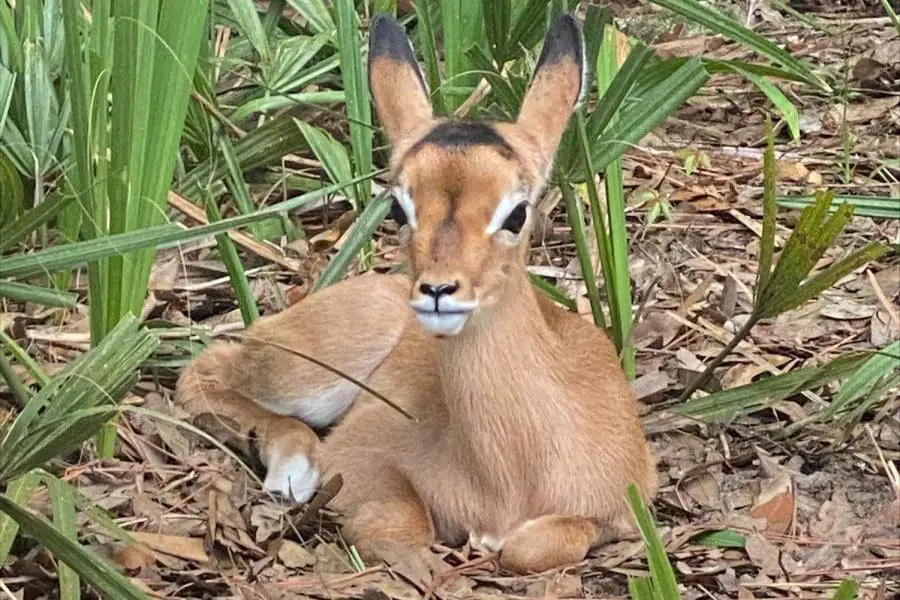

Bouncing baby impalas are now on our giraffe veldt!
Edtior’s note: We are sorry to share that one of our impala calves unexpectedly passed away recently.
Our animal care team noticed that Herman the impala calf was lethargic that day, so he and his mom Holly were brought into the Africa Barn for his exam. Our veterinary team found that he likely had sepsis (a life-threatening reaction to an infection) and pneumonia, and they immediately began treating him with fluids, antibiotics and more. Unfortunately, Herman had a cardiac arrest later that afternoon and he did not recover.
A necropsy found that he had an umbilical infection, a common problem in baby animals. This most likely caused the sepsis, which later led to pneumonia.
Our remaining three calves are all doing well. All had neonatal exams at 3 days of age and showed good evidence of nursing and the corresponding transfer of maternal antibodies, so we are hopeful they will continue to thrive. The calves are being closely watched over by our animal care team, and there is no evidence of a transmissible disease risk at this time.
Please keep our Expedition Africa team in your thoughts.
Our herd of impala is having its own baby boom! Four impala calves were born over the last few weeks.
Impalas Holly, Kiswa and Dodge gave birth to male calves, while Jamii had a female calf. The sire for all these new calves is 3-year-old B Guy, who came to our Zoo in 2020 as recommended by the Association of Zoos and Aquariums’ Species Survival Plan (SSP) for impala. SSPs manage the populations of animals within AZA-accredited zoos to ensure healthy, genetically diverse groups.
B Guy is the father of last year’s calves, Lucy and Rainbow, as well.
Impalas are typically pregnant for 5 to 6 months. The calves weighed between 10-15 pounds each and are all successfully nursing from their moms, which they’ll continue doing for another 4 to 6 months.
All the mothers and calves are now back with their herd on the giraffe veldt. Impala mothers tend to bring their calves back to the herd a few days after birth if there are several calves around. These nursery groups tend to be safer because predators have more difficulty selecting an individual.
If you’re looking for the calves, take a peek in the center area of the Veldt full of brush and trees!
Brevard Zoo is an independent, not-for-profit organization that receives no recurring government funding for our operating costs. Your generous support enables us to continue to serve our community and continue our vital animal wellness, education and conservation programs.
